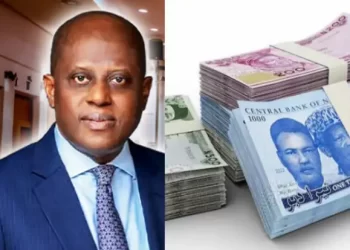The Independent National Electoral Commission, INEC, yesterday released the register of voters for next month’s general elections.
In the register, the total number of voters stands at 68, 833, 476.
The figure is relatively lesser than that of 2011, where 73.5 million voters were registered.
The development came even as the Commission warned political parties and their candidates to be wary of their utterances.
The opposition-All Progressives Congress APC had vowed to reject the voter register, should INEC decide not to publish the number of registered voters in the party’s strongholds.
INEC Chairman, Prof. Attahiru Jega, who announced this at a meeting with representatives of political parties in Abuja, said that 580, 000 cases of multiple registrations were detected in the just concluded Continuous Voter Registration and consequently eliminated.
Only 23 out of the 28 political parties were present at the parley.
Jega also stated that over 4m cases of multiple registrations were discovered after the issuance of the Temporary Voter Cards, TVC, before the 2011 general elections.
Also, 681, 485 registrants were denied the issuance of Permanent Voter Cards, PVCs, due to their failure to register with their finger prints.
It was learnt that the register, which is in hard drives, will be issued to political parties through the commission’s Department of Political Party Monitoring as from today.
Jega also added that following nominations made by political parties and as required by law, INEC has published the list of candidates for the National Assembly and Presidential elections in its state offices as well as on its website.
For the presidential election, there are 14 candidates duly nominated by political parties, while for the Senatorial elections, there are 739 candidates.
“For the House of Representatives election, there are 1,780 candidates. The list of nominated candidates for state elections (governorship and Houses of Assembly) will be published on 27 January, 2015,” Jega stated.
He disclosed that the commission has received from the government, all the funds required to conduct the elections.
“We can say, in effect, that funding is no longer a challenge to the forthcoming elections,” he added.
On the issue of PVCs, Jega said over 38 million has been distributed, while several millions are yet to be collected.
“To address this challenge, we have directed Resident Electoral Commissioners, RECs, to further decentralise distribution to the Ward level. We have also extended the time for distribution, which is now 8:30am to 5:30pm, Mondays to Saturdays,” he added.
He said the Commission has taken delivery of additional PVCs from the contractor, and is hopeful that all outstanding cards will be delivered latest by January 28.
Jega also dismissed speculations that the Commission might resort to the use of the TVCs, saying; “for the avoidance of doubt, possession of PVC is a strict condition for anyone intending to vote in the 2015 elections.”
On the issue of card readers, INEC said it has taken delivery of more than 130, 000 units and the remaining quantity would be received before the end of this month. The readers are already being deployed in the states, he said.
Jega also restated his earlier position that elections would be conducted in the Northeast, but was quick to add that the Commission may not be able to deploy its staff in communities that are strictly under the control of terrorists.
He added that the Commission is already finalising arrangements to enable Internally Displaced Persons, IDPs, to vote.
Responding on behalf of the political parties, Chairman of the Inter-Party Advisory Council, IPAC, Dr Yunusa Tanko commended INEC for its strict adherence to the electoral time table.
He however advised the commission to scale up its effort at producing the remaining PVCs before the election.













































